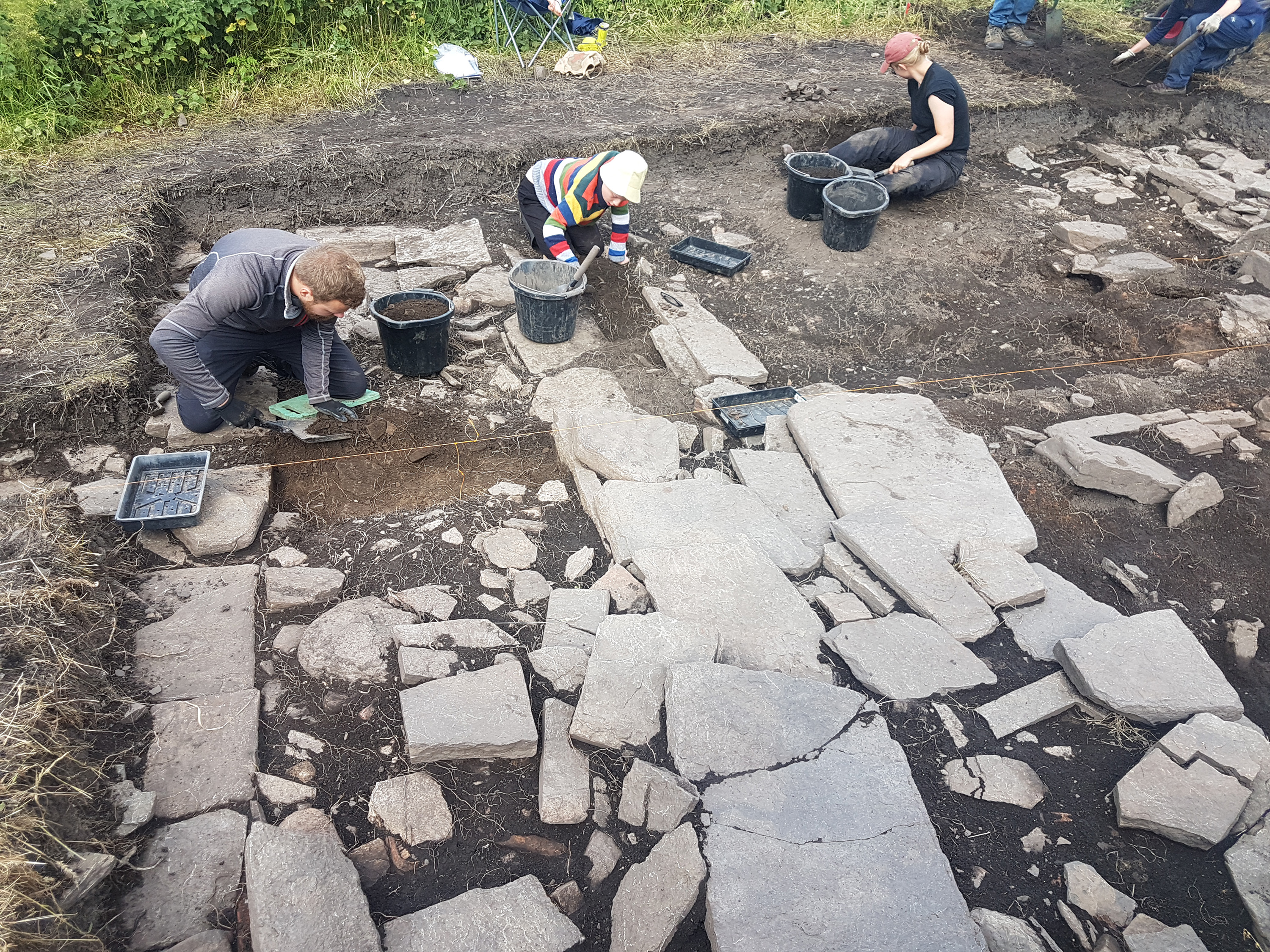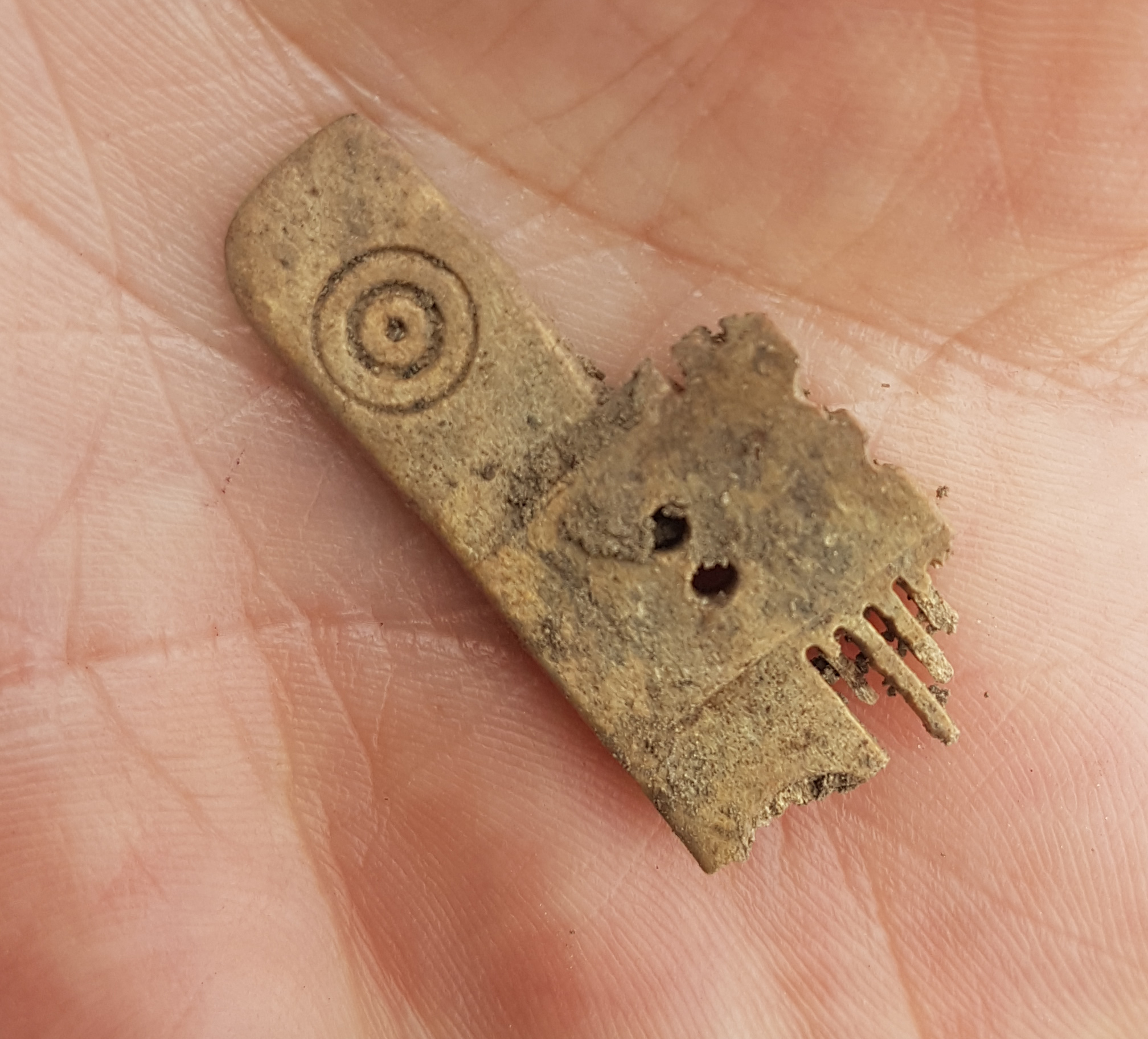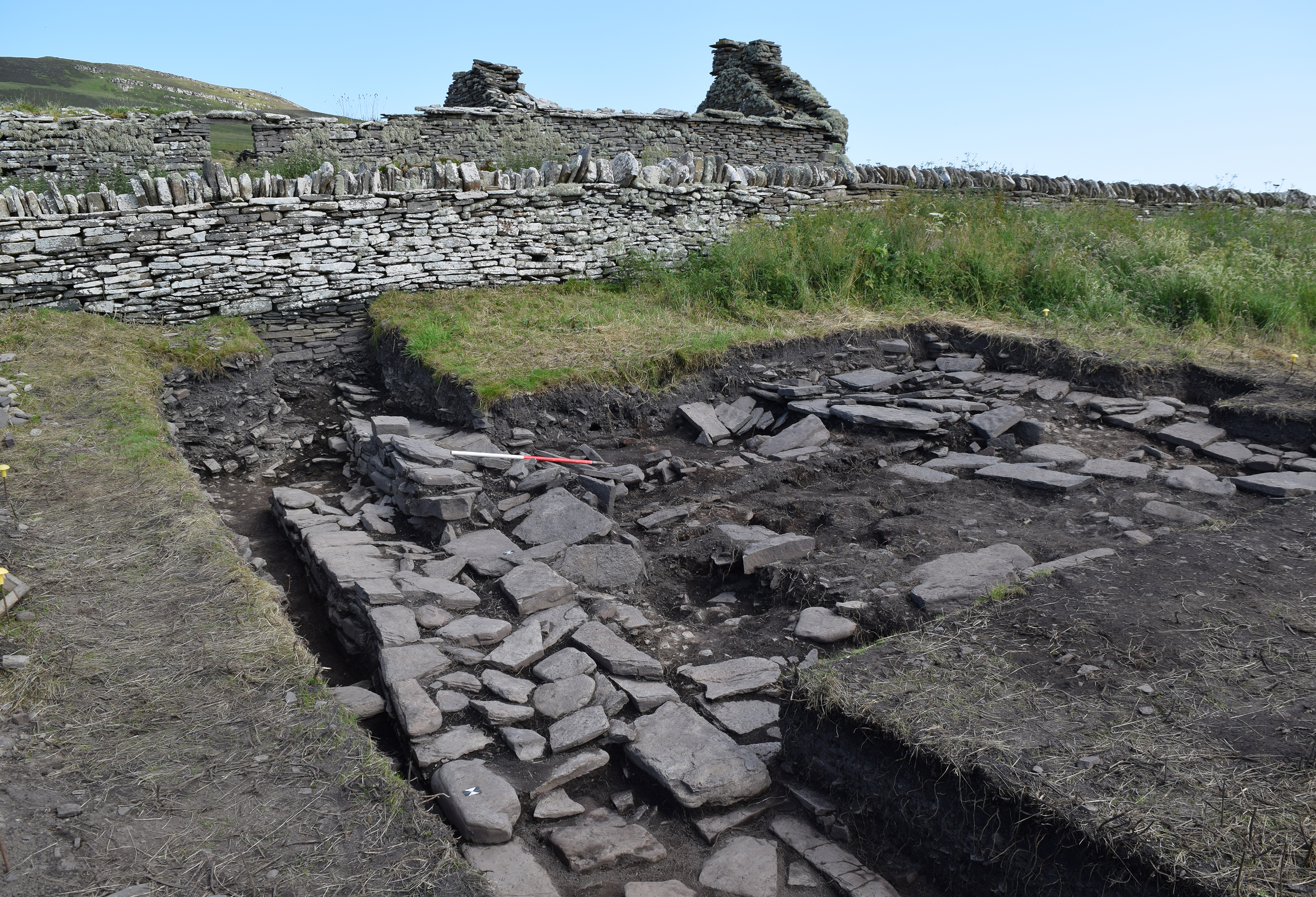
A Viking “drinking hall” that could have been used by a high-ranking chieftain 800 years ago has been unearthed in Orkney, archaeologists say.
The discovery was made at Skaill Farmstead in Westness, Rousay, and is believed to have been a high-status Norse hall, dating as far back as the 10th century.
Westness is mentioned in the Orkneyinga Saga – a historical narrative of the archipelago – as the home of Sigurd, a powerful 12th century chieftain.
The trenches at #Skaill farmstead excavations. #Rousay #SkaillSaga #Orkney #Archaeology @OAS_Orkney @OrkneyHeritage @orkneycom @DigItScotland @UHIArchaeology pic.twitter.com/SdMMHJ3JLG
— Takethehighview (@Takethehighview) July 21, 2019
The site offers an “unparalleled” opportunity to research eating habits in the region over a millennia, according to researchers from the University of the Highlands and Islands (UHI).
The name Skaill suggests the site was home to a Norse hall or drinking hall and was a high-status site.
A team from the UHI Archaeology Institute, residents and students have been digging at the site for a number of years in an effort to find the building.
Dan Lee, co-director of the excavation project, said “The exciting news this season is that we have now found the hall at Skaill, as the place name suggests.
“You never know but perhaps Earl Sigurd himself sat on one of the stone benches inside the hall and drank a flagon of ale.”

The hall is believed to date to the 10th to 12th centuries and was discovered below a more recent farmstead.
“Substantial” stone walls were found 5.5 metres apart, with internal features such as stone benches along either side.
The building appears to be more than 13 metres long and facing down a slope towards the sea, although it is not yet fully uncovered.
Finds have included soapstone from Shetland, pottery and a bone spindle whorl, while a fragment of a Norse bone comb was also unearthed.
Archaeologists have been investigating the later stages of the farm complex and its middens, with a particular focus on past diet, farming and fishing practices.

Project co-director Dr Ingrid Mainland said “We have recovered a millennia of middens which will allow us an unparalleled opportunity to look at changing dietary traditions, farming and fishing practices from the Norse period up until the 19th century.”
The excavation is part of the Landscapes of Change – Archaeologies of the Rousay Clearances and Westness Estate project.
It aims to explore the farmstead at Skaill from the Norse period to its abandonment in the 19th century.
The present farm dates to the 18 or 19th centuries and was part of the Rousay clearances during the mid-19th century.
Orkney was once a seat of great power in the Norse empire and its Viking heritage – such as place names and architecture – remains strong to this day.

Genetic studies have found many from the archipelago are descended from those who settled the islands in the late eighth century.
A historic account of this period can be found in the Orkneyinga Saga, which was written in Iceland in the 12th century.
The islands remained part of a Scandinavian kingdom until 1468 when they were pawned to the Scottish Crown by Christian I of Denmark.


Comments: Our rules
We want our comments to be a lively and valuable part of our community - a place where readers can debate and engage with the most important local issues. The ability to comment on our stories is a privilege, not a right, however, and that privilege may be withdrawn if it is abused or misused.
Please report any comments that break our rules.
Read the rules here